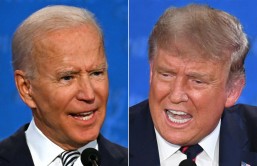The San Francisco Giants re-signed one of their starting pitchers to maintain some continuity in their rotation heading into 2015. Bud Selig, who will be replaced by Rob Manfred in January as the league's commissioner, will earn a hefty annual salary in retirement.
Jake Peavy will stay in the Bay Area after re-signing with the Giants on a two-year, $24 million contract. According to ESPN's Jerry Crasnick, the right-hander will earn $7 million in 2015 and $13 million in 2016 on top of his $4 million signing bonus. Peavy also has a full no-trade clause. The 13-year veteran has won two World Series titles in 2013 with the Boston Red Sox and then in 2014 with the Giants.
Peavy was traded from Boston to San Francisco before this year's deadline. In 20 starts with the Red Sox, the right-hander was 1-9 with a 4.72 ERA and 1.43 WHIP, but had a much better stint with the Giants after compiling a 6-4 record with a 2.17 ERA and 1.04 WHIP in 12 starts. However, he was humbled in the postseason after going 1-2 in games against the Washington Nationals, St. Louis Cardinals and Kansas City Royals with a 6.19 ERA and 1.69 WHIP in four starts.
The Giants are moving toward solidifying their starting rotation as they continue to speak with starter James Shields.
In the Commissioner's Office, Bud Selig will be stepping down on January 25 to be replaced by Rob Manfred. According to ESPN's Buster Olney, the 80-year-old Selig will receive an annual salary of $6 million during his retirement. In his final year as commissioner, Sports Business Daily found he earned $22 million, but other sources have the number above $30 million.
Selig took over as commissioner in 1992 after Fay Vincent resigned and was then officially elected in 1998 after the owners decided to give him the position permanently. Selig helped bring baseball to Milwaukee in 1970 when he relocated the Seattle Pilots to Wisconsin. He and his family owned the team until it was sold in 2005.
During his tenure as commissioner, Selig oversaw the addition of the Arizona Diamondbacks and Tampa Bay Rays to the MLB, the introduction of wild card playoff teams, interleague play and instant replay, among various other changes and advancements.








